AUGUSTA — Nine deer hunters scouted the trees and chose the limbs that would soon become their bows. They also soon realized this bowmaking class in the Maine woods was less about chopping and filing wood as it was about finding peace and a connection with nature.
Bob Brooks has been a primitive bowmaking instructor for 40 years. He brought his skills to the Maine Primitive Skills School 27 years ago, when it opened. He said since this hands-on approach is the essence of hunting, it’s all connected.
“You have to use your hands to feel the wood to find bumps,” said Brooks, of Washingtonville, New York. “You use all your senses. You have to slow down. Be patient. Take it one step at a time.”
The Maine Primitive Skills School, located in the rural northeastern corner of Augusta, teaches outdoor skills, including bowmaking. Also taught here are courses in tracking, foraging, use of medicinal plants and building wilderness shelters.
Some students stay for a seven-month immersion semester, others for one of many classes.
A SCHOOL IN THE WOODS
Michael Douglas, a former Marine, has run the school for 27 years and won awards for his methodology in teaching survival skills. A Registered Maine Guide, he is currently studying Sweden’s nomadic reindeer herders.
Douglas said the connection to nature is most important in survival skills, and his students embrace this philosophy. He said about 80 apprentices have passed through the school since its inception and many have gone on to be leaders at other primitive skills schools.
“When I started there were two primitive skills schools in the country,” Douglas said. “Now there are about two in every state.”
The school sits on a 23-acre campus where a large open shelter offers an outdoor classroom as well as a blacksmith workshop. Down a woods path is the Earth Lodge, inspired by the Cree in Canada. Covered in leaves and camouflaged in the woods, it looks like a hobbit dwelling. From here a loop trail leads past four other primitive shelters where staff and students stay.
TEACHING THE CRAFT
Brooks comes every fall to teach a bowmaking class that doesn’t use rulers or measurements. He encourages his students to feel the wood and use their senses to find and follow the grain, even if that leads to a slightly crooked bow.
“I still have a 24-year-old bow I made that I use. I’ve shot the hell out of it,” Brooks said. “Most classes teach you to draw a straight line and cut it even if it’s across the grain of the wood. That makes a weak bow.”
Brooks’ method is a more organic approach, but he said it yields a stronger bow and smarter bowmaker.
When he began making bows 40 years ago, it was a calming hobby when he worked for the New York Port Authority during the 1993 World Trade Center terrorist bombing and then the Sept. 11 attacks in 2001.
When Brooks retired, he wanted to give back. So he decided to share what he loves. At first he traveled around the Northeast to primitive skills schools to teach bowmaking.
Now he just comes to Maine.
“When I experienced bad things working for the Port Authority, this put it in perspective,” Brooks said. “Bowmaking is very therapeutic. And I’m good at this. And this is my favorite group. This is a special place. It changes you.”
CARRYING ON TRADITION
Nate Bears is the Maine Primitive Skills School’s resident bowmaking instructor. A Millinocket native, he graduated from Maine Maritime Academy with an engineering degree and went to work on a cruise line before realizing quickly he wanted to be more connected with nature. He found the Primitive Skills School and after years as an apprentice is now an instructor.
Bears said bowmaking connects a hunter with the woods before they even go there to hunt deer.
After picking a piece of wood, they must feel their way to its shape as they cut and file, shaping the thinner ends and the thicker middle section for the handle.
“You’re liberated when you take a tree and understand how a piece of wood bends and where the stresses are,” Bears said. “It’s not about measuring, it’s not about the thickness. It’s about really understanding the piece of wood. It slows you down. Every time you swipe (the file) it has a purpose. It’s quite a commitment to make a bow this way. It’s not cookie-cutter. You can’t just make it in a weekend.”
That’s what Daniel Ravenhurst of Northhampton, Massachusetts, was looking for when he signed up for the 10-day class. He found shooting a bow and arrow to be like yoga: It forces you to work on your breathing and puts everything else out of your mind. He hoped the primitive bowmaking class would do the same.
“I wanted a hobby that would help me get out of the crazy pace of everyday life,” said Ravenhurst, 24, a landscaper. “Most day-to-day life is manic, everyone’s rushing, there’s this incredible intake of information. It’s good to come here and slow down. It’s definitely more of a philosophy. It’s been rewarding seeing the bow take shape.”
Odell Bouchard of Stephentown, New York, first took a course from Douglas in Sweden. She immediately saved up money to attend the Maine Primitive Skills School in Maine as an apprentice. Now 21, Bouchard hopes to use what she learns about primitive skills to pursue a degree as a holistic therapist.
“It’s so deep,” Bouchard said. “Like Bob said, it helped him through a hard time by going slow and being patient, he learned to make that more of his life philosophy. I was excited to make a bow, but there are deeper layers in this craft.”
Deirdre Fleming can be reached at 791-6452 or at:
dfleming@pressherald.com
Twitter: FlemingPph
Send questions/comments to the editors.


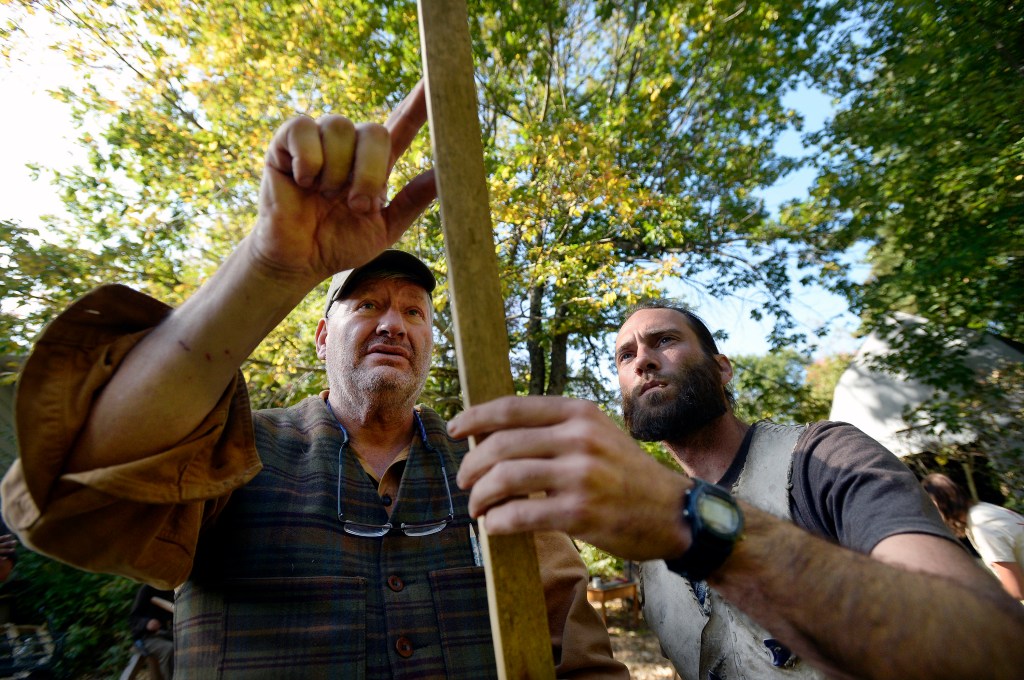
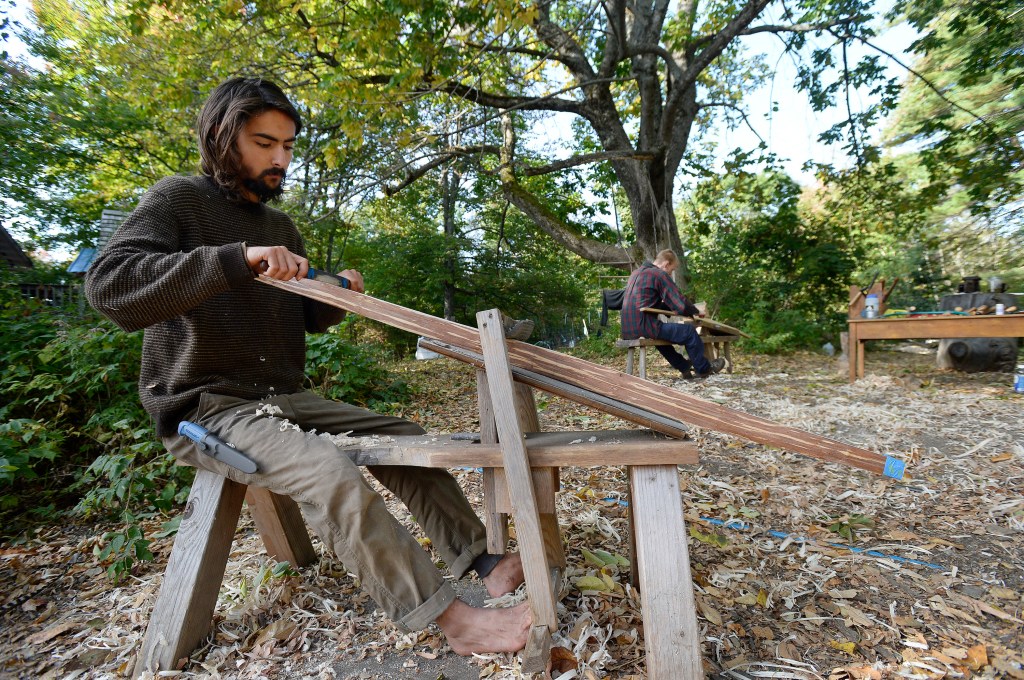
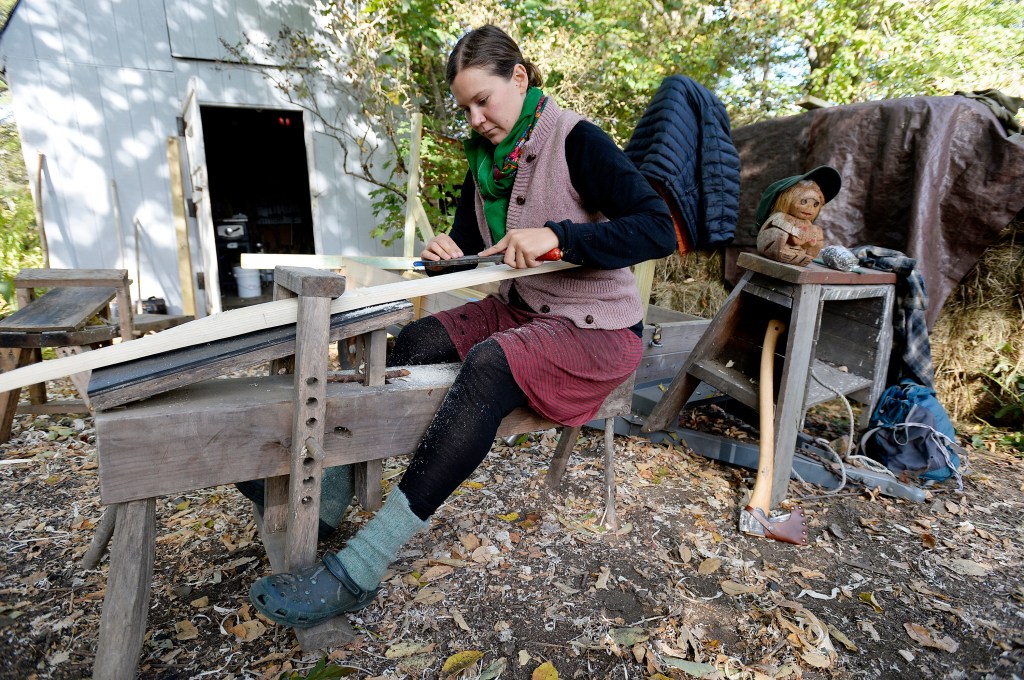
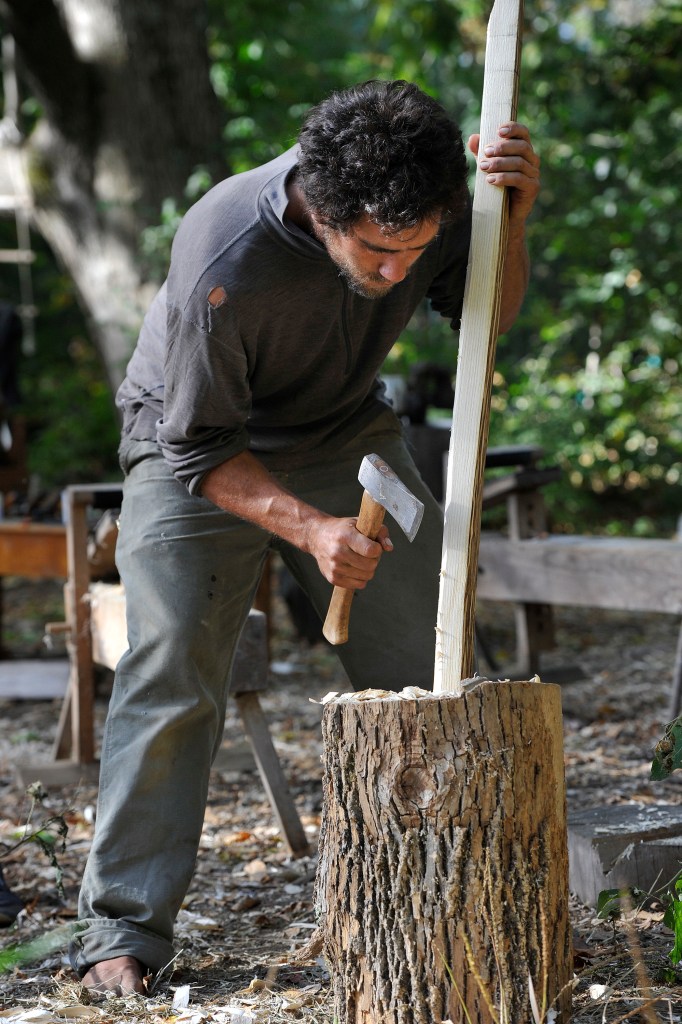
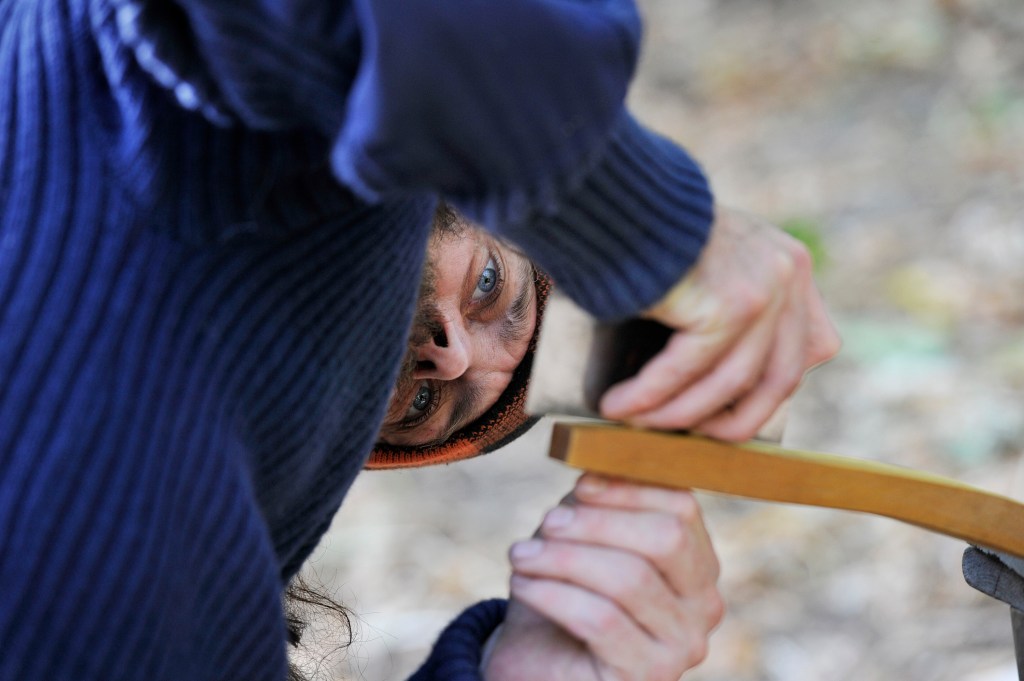
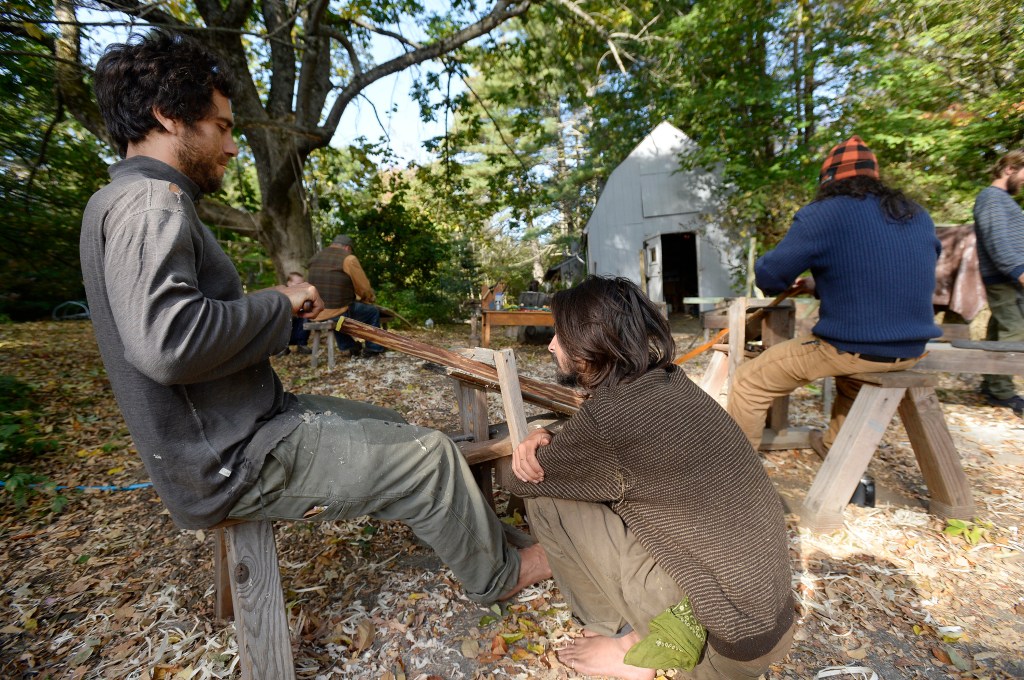
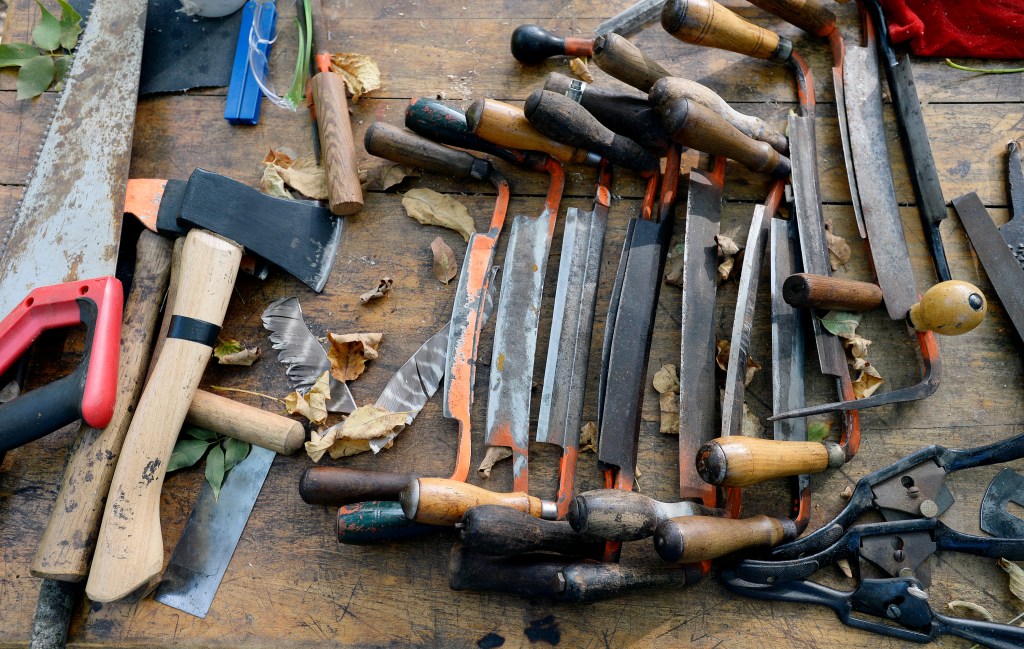
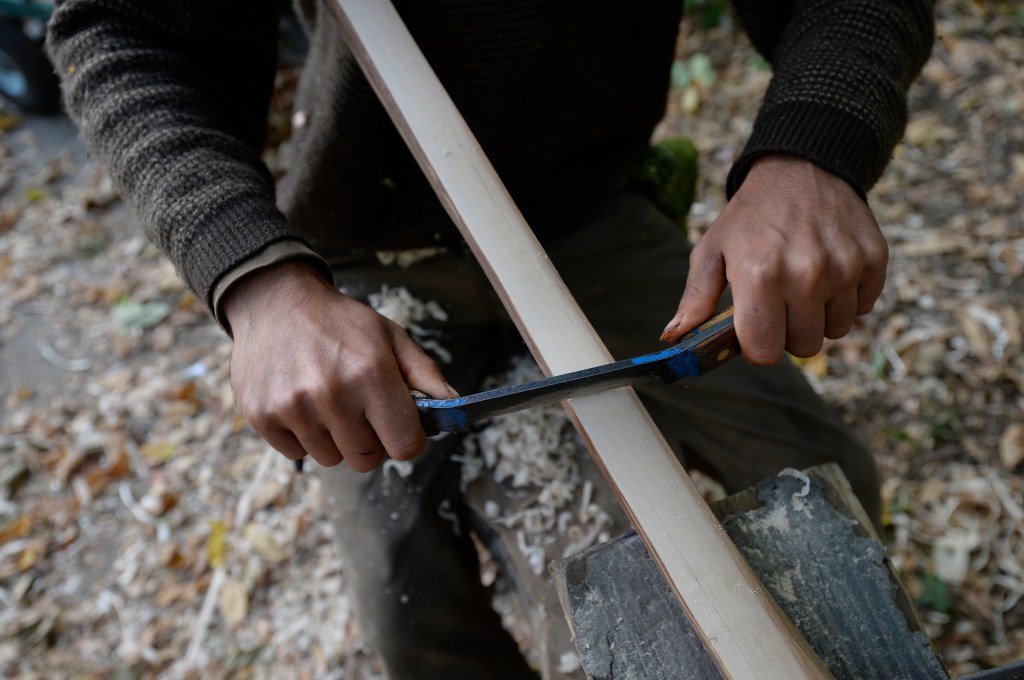

Success. Please wait for the page to reload. If the page does not reload within 5 seconds, please refresh the page.
Enter your email and password to access comments.
Hi, to comment on stories you must . This profile is in addition to your subscription and website login.
Already have a commenting profile? .
Invalid username/password.
Please check your email to confirm and complete your registration.
Only subscribers are eligible to post comments. Please subscribe or login first for digital access. Here’s why.
Use the form below to reset your password. When you've submitted your account email, we will send an email with a reset code.